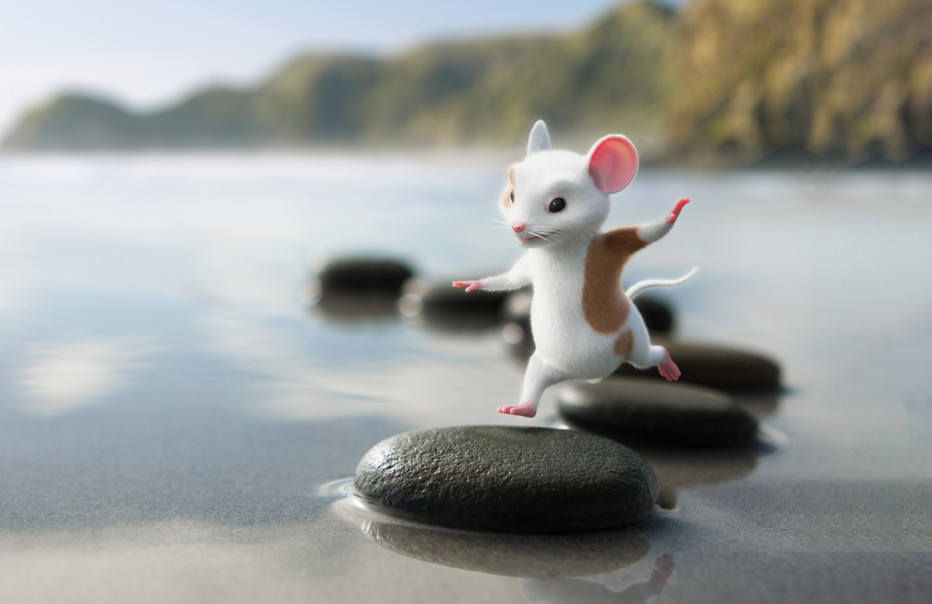KiwiSaver

Borrowing money is a bit like playing with fire. You can get some warmth and wellbeing out of it – especially if you are borrowing to study, start a business or buy a home. But too much debt can burn out of control, too.
If you’re already carrying debt – especially the high-interest kind – here’s how to get out of it quickly and save. But if you’re only just thinking about a loan or applying for credit, read on for the key things to know ahead of time.
Whether you are popping something on a credit card, signing up for Buy Now, Pay Later, or taking out a personal loan, a car loan or a mortgage – you are going into debt. Whenever you use credit, you are going into debt. It’s just borrowing.
When you borrow, you’re essentially spending other people’s money. It’s a bit like using your future money early – money you haven’t earned yet. That typically comes at a cost, with interest and fees attached.
And of course it will need to be repaid. (Loans that don’t have to be repaid are either gifts… or scams!)

For both the borrower and the lender, loans have a certain amount of risk. Lenders can charge more to cover themselves, but borrowers only have their savings to fall back on.
Going into debt is risky business, for both the lender and the borrower. The lender may not be sure if they’ll be paid back. If they think you’re more of a risk, they charge you higher interest. There’s more on how that works below.
As a borrower, your risk is that the loan may seem like a good deal to you, but your circumstances could change, leaving you unable to repay. Or a critical emergency might crop up, so you have to pay for that instead of repaying your loan.
You can be a smart borrower by knowing what you’re signing up for, reading the fine print of your credit contract, and having an emergency fund at the ready if anything goes pear shaped. You’ll want to make sure you have a good plan in place to pay back the money you’re borrowing.
When you take out a loan or use credit, the price you pay for using other people’s money over time is charged in fees and interest.
There can be all sorts of fees when you borrow: setup fees, annual fees, late fees, default fees (a penalty if you miss payments).
Your credit contract sets out the fees involved in your loan (it’s typically in the fine print).
Interest is what you pay for borrowing – the cost of money over time. It’s typically represented as an annualised percentage rate (you’ll see it called an ‘APR’ in the fine print). It’s how much you’d pay over a given year for each $100 borrowed.
Because interest is shown in percentages, these can seem like minuscule numbers not worth paying attention to, but those tiny figures can cost you thousands, even tens of thousands of dollars. Here are some typical interest rates:
You can easily see which type of loan is most expensive from those rates, but how much you end up being charged depends on how long you take to repay. The longer your debt goes on for, the more it costs you. If you take on high-interest debt like a payday loan, it’s best to treat it as an emergency and get rid of it as quickly as possible!
When you borrow, you’ll find your interest rate for your particular loan on your credit contract, but you may not know if it’s a good one or not. One way to compare is at interest.co.nz, which publishes rates for credit cards, personal loans and mortgages. Rates change frequently, and comparing helps you shop around.
Remember how your lender will charge you a higher interest rate if they think there’s more risk that you may not repay? One way to get a better interest rate, and a better deal, is to know and improve your credit score.
Your score is based on how well you paid your bills and repaid loans in the past. The higher your score, the more likely you’ll be able to get cheaper credit. Here’s our guide to credit reports and how credit scores work.
Deciding whether to borrow money to buy something involves more than just working out if the repayments are manageable. You need to keep in mind the overall cost, including the interest and fees.
One of the pitfalls to steer clear of with debt is paying more than you want to for something. Using our debt calculator can forecast how much you’ll be paying in fees and interest overall.
The other pitfall with debt is that you overextend yourself – you stretch your finances too far by taking too much on at once. It’s important to keep to your comfort level, and borrow only as much as you can handle at any given time.
Remember, debt is like fire, so you’ll want it always under control.
It feels easy to pay for a meal in a restaurant on a credit card in the moment. But if you take a few months to pay off the credit card, the interest charged makes that meal more expensive every day the debt isn’t paid off. Probably better to save for it and avoid borrowing.
That said, debt can be a good idea in certain cases. Borrowing for assets that can increase in value – such as an education, a property or a business – can help you grow your finances over time.
But some assets lose value after we’ve paid for them, like a common car. Every year the car is worth less. Borrowing to buy a car can be a risky move, especially if it loses value faster than you can pay off the debt. So the more of the car price you can save up ahead of time, the better.
Whenever you borrow, the key is to have a plan to get out of the debt before you jump in. The risk is that you won’t be able to repay, that you’ll pay too much, or that too much of your everyday money will be going towards repayments. Have a think about:
For more on what to expect from a lender, see this helpful guide from the Commerce Commission.
Staying in debt is not sustainable. Because it costs you in fees and interest, the longer it goes on, the more expensive it gets. It holds you back from getting ahead.
You want to find the quickest way out… and then stay out.


Before you borrow, plug in some figures into our debt calculator. It will give you a better idea of how long your loan could last and help you plan ahead.
If you're having some financial troubles and think you're going to find it hard to make the next repayment on a loan, go and talk to the lender straight away. You have the right to ask for new arrangements to repay and this is the best way to avoid extra costs.
If you fall behind on repaying your loan, you can be charged penalties in the form of fees or a higher interest rate. Your late payments will be recorded against your credit score (which affects your ability to borrow more someday).
If you can’t repay your loan at all, and your lender gives up trying to get you to repay, they can sell your loan to a debt collector. Then they have a go at harassing you into repaying. We wouldn’t wish it on anyone, but if you do get caught out, it helps to have someone in your corner.
The team at MoneyTalks is worth reaching out to for support.
Taking on debt is risky, since in the future our situation may change and we might find it difficult to repay the loan. So if our circumstances did suddenly change, would the loan we’re thinking about put us in real difficulty? If so, it’s too much debt. Another sign is if you’re just keeping up with minimum payments and the debt doesn’t ever seem to be going down. A lender has ways of protecting themselves when loans go bad, including default fees and interest rates, and even the ability to write it off and sell it. The only defence we borrowers have if something goes wrong is our own reserves. Here’s one borrower's story.
Yes. When you buy something using a Buy Now, Pay Later (BNPL) company like Afterpay, Laybuy or Humm, you pay a small part straight away and the company pays the rest. You receive the item straight away. Then you pay the company back – typically in three fortnightly instalments. This type of loan, if you make the repayments on time, is interest free. But costs can add up if you miss a payment. Here’s more on how to be smart with BNPL.
Going into debt is always a bit risky, since your circumstances might change, and it could become difficult to repay. Sometimes it’s hard to tell what might happen.
The aim is to avoid all late fees, otherwise we end up paying more for something than we intended to. These penalties can end up as high as 25% of the original price – so that $1000 flat screen could end up costing $1250 if not repaid on time.
The other catch with BNPL is that we can get ‘upsold’ on buying more than we planned to. To get around that, focus on the overall price, not just the low individual instalment amount.
Not much, actually. When you sign up for BNPL, the company is giving you credit – that is, the ability to borrow a certain amount and pay it back in instalments. If you look at your Afterpay or Laybuy app, for example, you can see what your credit limit is, and how much you can borrow. It’s typically around $1000, but your limit will increase over time as you use the service.
So think of BNPL as credit (an amount you can borrow) and debt, just like any other loan you’re paying back.
Note: It’s important to know that your credit limit with BNPL gets taken into account when you apply for other loans, so having too many open can limit your ability to borrow further.
If you are unable to repay a loan, debt collectors buy your debt from the original lender for cents in the dollar, and then have a go at harassing you into repaying. This can include phone calls at all hours and knocking on your door. We wouldn’t wish it on anyone, but if you do get caught out with a debt collector, it helps to have someone in your corner. The team at MoneyTalks is worth reaching out to for the support you need.
One of the most important things that mortgage lenders look at is how much income you have free in order to make loan repayments. With too much debt, a lot of your income is already committed to repaying other loans, and there’s only so much to go around. Even if you’re not using all of your credit limit, it’s important to know that the lender will assess you as if you are. They will also look at your credit history, and how well you’ve repaid other loans. In the end the lender may decide to lend you less, or nothing at all. Here's more on what to expect to borrow when you’re buying a home.
Don’t know where to start? Our 6 steps will help you to take control of your money.
Head to the 6 steps

Use verification code from your authenticator app. How to use authenticator apps.
Don't have an account? Sign up
Or log in with our social media platforms


A Sorted account gives you a personal dashboard where you can save your tools, track your progress and you'll also receive helpful money tips and guidance straight to your inbox.

